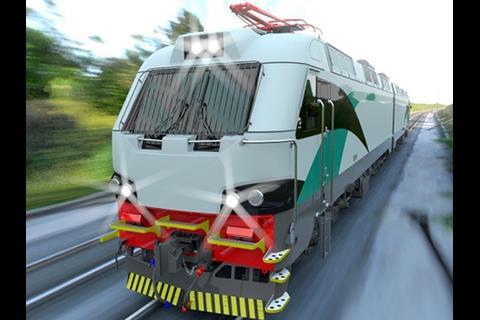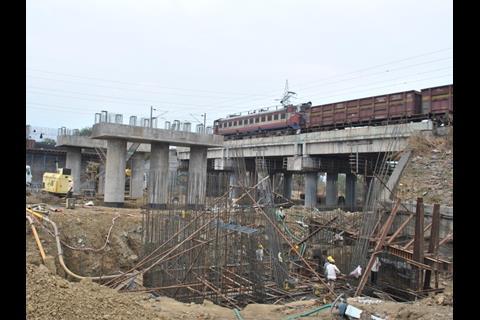INDIA: The Ministry of Railways issued Alstom with a letter of award for a contract to build a factory and supply 800 twin-section electric locomotives on November 10, a day after announcing a similar deal with GE covering 1 000 diesel locomotives.
The electric locomotive factory is to be built at Madhepura in Bihar by a joint venture between Indian Railways (with a 26% stake) and Alstom Manufacturing India Ltd which is expected to be finalised within 30 days. Two maintenance depots are to be built at Saharanpur in Uttar Pradesh and Nagpur in Maharashtra.
According to the Ministry of Railways, construction of the factory and maintenance facilities is expected to cost Rs13bn and take three years. The joint venture would be required to supply Indian Railways with 800 locomotives between 2018 and 2028, at an estimated cost of about Rs190bn plus taxes.
Alstom will also organise the maintenance of 500 of the locomotives at the two sites until the end of the contract period, at which point responsibility would be transferred to Indian Railways. Alstom is to introduce international best practice and develop local competences to meet Indian Railways’ desire to bring its failure rates and maintenance intervals closer to European levels.
The contract covers a single type of locomotive, which is to be development of previous Prima family designs including locomotives supplied to Kazakhstan but with modifications to suit Indian requirements. They will have IGBT traction controls, be rated at 9 000 kW at the wheel rim and have a maximum speed of 120 km/h.
The locomotives are to be used on the Eastern Dedicated Freight Corridor for hauling 6 000 tonne trains at 100 km/h, and also on other routes to raise the average speed of heavy freight trains from between 25 and 30 km/h to between 50 and 60 km/h.
The prototype locomotives are scheduled to be delivered with two years, and the deal allows for the first five to be imported. The remaining 795 locomotives must be manufactured in India, with ‘complete indigenisation’ of manufacturing in support of the government’s Make in India campaign.
‘We will localise as much as we can’, Jean-Marc Tessier, Alstom Vice–President Locomotives & High Speed Trains told Railway Gazette International, emphasising that ‘the ultimate objective is to have a locomotive made in India’. Alstom’s European plants will provide up-to-date design, manufacturing and maintenance expertise which is not available locally, while its existing manufacturing facilities in India and the country’s extensive supply industry means that it will be possible to source most components domestically. The factory would be ‘fully employed’ on the contract until 2028, he said, two possible options for 100 locomotives each would provide a full workload until 2030.
Plans for an international tender to select a partner to develop the factory had been approved by the cabinet in February 2007. A request for qualification was issued in May 2013, and in May 2014 Alstom, Bombardier, GE and Siemens were shortlisted to submit financial bids by August 31 2015.



















